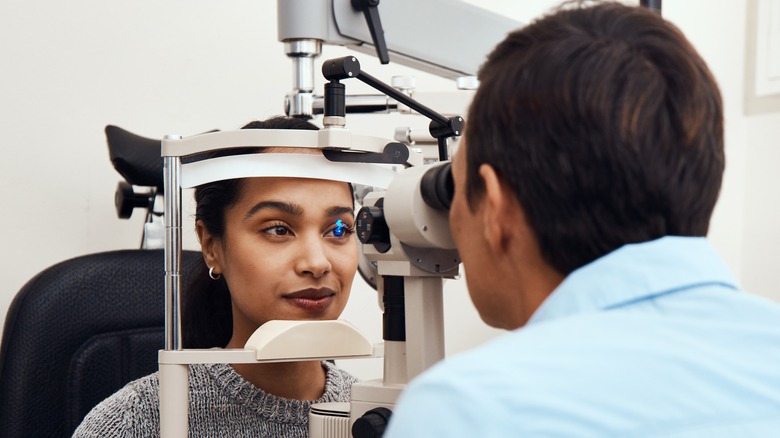How Melatonin Might Impact Your Eye Health
Melatonin works in your brain to regulate your sleep cycle because it kicks in when there's less light. Although your body produces it naturally, many of us take a melatonin supplement to help with occasional sleeplessness, jet lag, some sleep disorders in children, and pre-surgery anxiety. You might not know that melatonin can also improve the health of your eyes.
Glaucoma is a group of eye diseases that can cause damage to the optic nerve, leading to vision loss and even blindness if left untreated. The condition is usually caused by increased pressure within the eye, which can damage the optic nerve over time. A 2021 study in the Journal of Pineal Research had glaucoma patients take melatonin in the evening for three months. The melatonin stabilized the patients' circadian rhythms and improved the intraocular pressure. The supplement also improved the function of the retinal ganglion cells in those patients with advanced glaucoma.
Melatonin can improve other eye conditions, too
Uveitis is an eye condition that causes inflammation in the uvea, which is the middle layer of the eye. The uvea contains many blood vessels and is responsible for supplying blood to the retina and other parts of the eye. According to a 2008 article in The American Journal of Pathology, melatonin reduced the inflammation associated with this condition in laboratory animals.
Melatonin might also help with age-related macular degeneration, which is a progressive eye disease that affects the macula. The macula is the part of the retina that provides sharp detail to our vision. A 2005 study in the Annals of the New York Academy of Sciences stabilized age-related macular degeneration after giving participants 3 grams of melatonin a day for six months. The majority of the participants in the study showed reduced eye damage.
Oxidative stress can cause damage to the lens of the eye and contribute to developing cataracts. According to a 2022 study in Experimental Eye Research, melatonin can reduce this oxidative stress by activating agents that protect the eye.
Is melatonin safe?
According to the National Center for Complementary and Integrative Health, melatonin is safe for short-term use for sleep problems, but it's not suited for chronic insomnia. There isn't enough evidence for the safety of stronger doses of melatonin for long-term use. Melatonin might interact with other medications, particularly blood thinners and epilepsy drugs, so check with your doctor if you plan to take melatonin. Melatonin is not to be used in people with dementia. Older adults should also be aware that melatonin can stay in their systems longer, which might make them drowsy in the daytime.
Because melatonin is considered to be a supplement in the United States, there are no guarantees about how much melatonin you're getting in your bottle. A 2017 study in the Journal of Clinical Sleep Medicine looked at 31 melatonin supplements found in grocery stores and pharmacies and found some brands to have 83% less or five times more melatonin in the product than was stated on the label. One chewable brand had 9 milligrams of melatonin even though the label said it contained only 1.5 milligrams. Different lots of the same brand can also have varying amounts of melatonin, so be sure you're buying a reputable brand.



